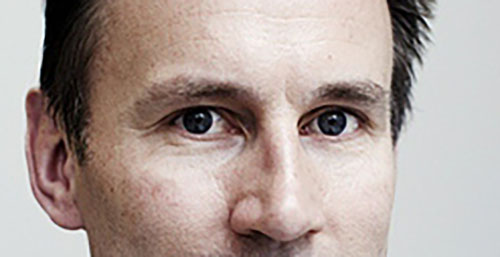Although Coronavirus is (rightly) taking up plenty of attention right now, the war on sexual freedom and free speech is trundling along in the background. Here are a few things that have happened in the past couple of weeks:
Woody Allen Cancelled
Mob-led censorship claimed a new victim last week when Film maker Woody Allen had the publication of his autobiography cancelled by his publisher Hachette, after staff walked out. Although Hachette had been planning to publish, it revoked the deal and returned the rights for the book to its author. Allen was accused of sexual abuse in the 1990s, but was investigated and cleared. The allegations came amidst a bitter campaign against him by his ex-partner, Mia Farrow. It appears that Allen has become the latest victim of the attack on due process that has arisen in the wake of the #MeToo campaign.
Anti-Kink Bill Returns to Parliament
The Labour MP (and vociferous campaigner against porn and prostitution) Harriet Harman is pushing the government to amend the Domestic Abuse Bill so that “rough sex” defences for injury and murder are outlawed. Although this may sound reasonable, in reality there is no “rough sex” defence: men are sent to prison for murder if there is evidence of murder, regardless of which defence they use. The amendment (which has been campaigned for by anti-sex radical feminist group We Can’t Consent To This, with help from the Guardian) is actually written to outlaw all rough / kinky sex, even for those who consent. (I wrote a more detailed explanation here). Small numbers of killings (for which men have been rightly sent to prison) are being used to create a moral panic that would make kinky sex illegal. This would particularly affect sex workers and people involved in the BDSM scene. The danger is (as so often happens with anti-sex laws) that MPs will vote for the law based on a mistaken belief it is designed to protect women from being killed.
Police are Investigating Thousands of Teenagers for Sexting
Way back in 2014, I wrote about the criminalisation of teenagers for sharing naked images of themselves. Recently published statistics have revealed the extent of police interference in teenage sexuality. Over 6,000 children under 14 have been investigated by police for “sexting”. No doubt aware that they are under surveillance, teens have adapted their language to prevent The (Dirty Old) Man spying on their sex chat. It seems that teens are sensibly using code words: for example, girls use “peri-peri” to refer to a well-hung male, and “coleslaw” to mean a bit on the the side. The story also revealed that girls talk about sex more than boys, overturning long-held stereotypes about sexuality.
Professor Fired After Online Misinformation Campaign
Bo Winegard, a professor at a small US college, was fired after being targeted by left-wing websites and students. There appeared to be little solid basis for the action, but he had been accused – with no apparent basis – of advocating “pseudoscience employed by eugenicists”. As in Woody Allen’s case, the facts appear to matter less than the power of the mob. Winegard’s account of events can be read at Quillette.
Please join the mailing list below to stay up to date – and consider making a small donation via Patreon.


